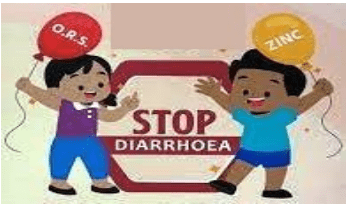Sri Vijaya Puram: The Health Department of the Andaman and Nicobar Islands has rolled out the Stop Diarrhoea Campaign 2025, an initiative aimed at reducing under-five mortality and promoting awareness around hygiene and preventive care. The campaign, running from July 16 to August 31, 2025, focuses on timely treatment, sanitation, and use of Oral Rehydration Solution (ORS) and zinc to combat childhood diarrhoeal diseases.
Operating under the slogan “Diarrhoea ki Roktham, Safai aur ORS se rakhen apna dhyaan,” the campaign seeks to reach both rural and urban populations across the UT through community outreach and field-level mobilization.
The initiative involves coordinated action by Accredited Social Health Activists (ASHAs), Auxiliary Nurse Midwives (ANMs), Anganwadi Workers, and Community Health Officers. These frontline workers will undertake home visits, organise health education talks, and distribute ORS and zinc kits to families with children under five.
During a virtual orientation session for field teams, the Director of Health Services stressed that all childhood diarrhoeal deaths are preventable and outlined the goal of achieving zero mortality through simple yet effective interventions. The department is pushing for pre-positioning of ORS and zinc sachets in vulnerable households and raising awareness about “Do ka dum”, the dual power of ORS and zinc.
The campaign’s reach extends beyond clinical treatment. It includes health infrastructure reinforcement, water and sanitation improvement, and hygiene promotion at the grassroots level. Health workers are also being trained in early detection of dehydration, referral procedures, and post-diarrhoea nutritional care.
Officials are leveraging existing healthcare networks to amplify the message of the campaign. In many villages, Anganwadi centres and primary health sub-centres have been converted into awareness hubs, offering demonstrations on handwashing, clean water storage, and safe feeding practices.
The campaign arrives at a critical time when global data continues to identify diarrhoea as one of the leading causes of child mortality, especially in low-resource settings. The UT’s geographically dispersed population and dependence on untreated water sources during monsoons increase the risk of diarrhoeal outbreaks, making timely intervention crucial.
In addition to health interventions, the campaign is also linking with Integrated Child Development Services (ICDS) and the school health program to expand its outreach. Community leaders, panchayats, and local NGOs have been asked to support awareness drives.
With the campaign extending over six weeks, health officials are aiming for high coverage across households with children under five. The success of the campaign will depend not just on the availability of ORS and zinc but also on behaviour change at the household level.
By combining community outreach, clinical care, and hygiene education, the Stop Diarrhoea Campaign 2025 aims to move closer to the national target of zero child deaths from diarrhoea in the Andaman and Nicobar Islands.





